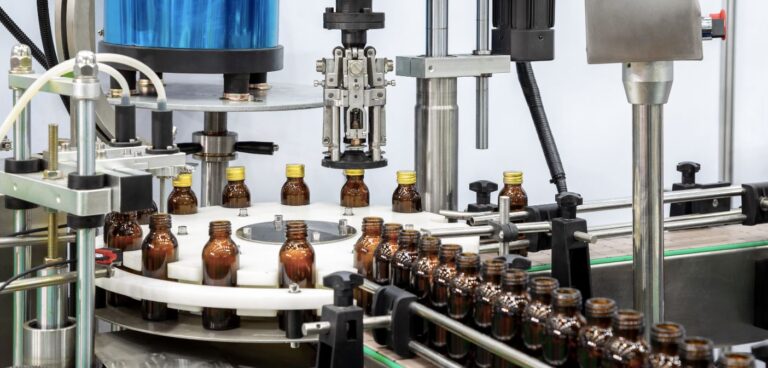According to a new report from the Medicines Manufacturing Industry Partnership (MMIP), introducing the right policies to support the UK’s manufacturing industry could attract annual investment worth £1.5bn over the next decade.
This, in turn, could support more than 116,000 new jobs, the group has claimed.
Through nine key recommendations, the report suggests how increasing government funding, alongside other policy changes, could secure this £15bn in investment and stop growth decline.
The publication argues that if the UK is to be a global life sciences superpower, the discovery, development and manufacture of future medicines all needed to be considered.
Some of the major recommendations of the report include: implementing a global leadership report for manufacturing sustainable medicines; investing £1.1bn over four years to provide reliable funding and resources for innovation; creating a five-year roadmap for medicines manufacturing technology, including establishing a UK Medicines Manufacturing Data Institute; setting internationally competitive R&D tax credits; securing a leading global talent base through training, skills and funding opportunities; and
strengthening health resilience through trade policy and streamlined regulation.
Currently, medicines manufacturing is the largest economic contributor to the life sciences sector, providing almost 45% of the £36.9bn of gross value added (GVA) delivered by the life sciences industry in 2019.
The report highlights how global competition for manufacturing investment has intensified, with countries such as the US, France and Ireland investing heavily in this sector and attracting major investments as a result in recent years.
Brian Henry, chair of MMIP, said: “The UK’s life sciences sector has tremendous potential to drive significant growth. But it is not enough to discover the medicines and vaccines of the future here, if companies then make them at scale elsewhere.
“We believe the UK can lead the world in innovative advanced manufacture of new therapies, drive more sustainable medicines manufacture and address gaps in our supply chain footprint.
“Our recommendations will help create the right, pro-investment ecosystem for companies to choose the UK when deciding where to place their next manufacturing facility.
“A sustained effort is needed to capitalise on the UK’s traditional strength in early-stage science and translate it into medicines manufacturing success – with all the jobs, investment and long-term growth that comes with it.”
Life sciences manufacturing employs 115,200 people in more than 200 sites right across the UK, with these jobs generating an average GVA contribution to the economy of £128,000 per employee.
Manufacturing investments have long lead times, hence the urgency of the report and its suggestion that the UK must plan now for 2030 and beyond, the MMIP has said.
The UK government recently announced plans to create a Biomanufacturing Fund to incentivise new investment and additional funding for projects such as Innovate UK’s Transforming Medicines Manufacturing Programme.








